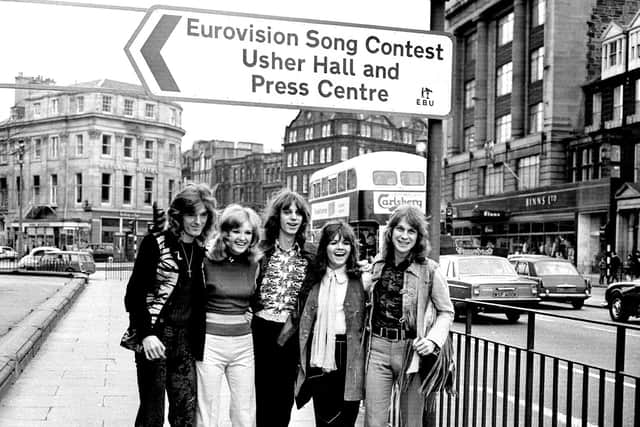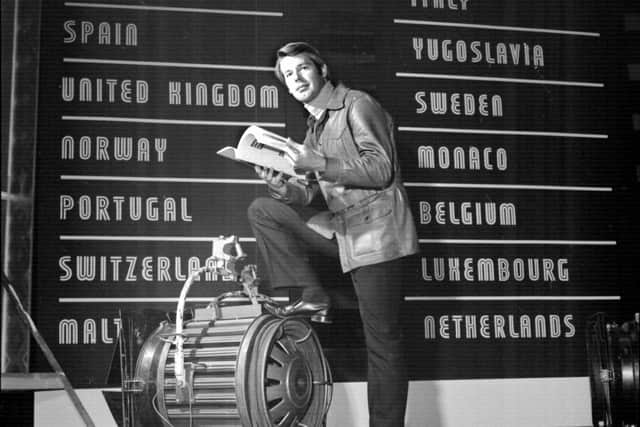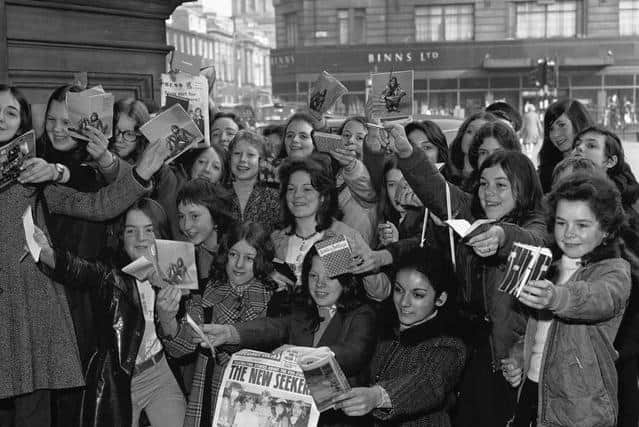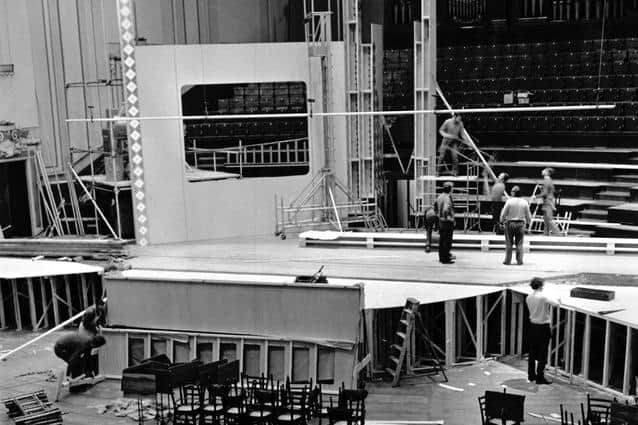Eurovision: 50 years ago today the Eurovision Song Contest came to Edinburgh
and live on Freeview channel 276
Let us know what you think and join the conversation at the bottom of this article
That Eurovision came to the Capital 50 years ago today at all was a quirk of fate. The city inherited the final when the 1971 winner, Monaco, found they were unable to provide a venue to host the following year's event as was, and still is, the tradition.
Shouldering the responsibility of producing and finding a home for the 1972 final eventually fell to the BBC who chose Edinburgh, the first time a location outside of London had been selected for a UK final. The Usher Hall, with a capacity of just under 3,000, was the venue of choice and internationally renowned Scottish ballet dancer, Moira Shearer, was chosen to present the annual songfest. The distinctive tones of actor Tom Fleming provided the commentary.


Advertisement
Hide AdAdvertisement
Hide AdRepresenting the UK that year were The New Seekers with the song Beg, Steal Or Borrow. Up against 17 other countries they were respectable runners-up to Luxembourg's Vicky Leandross, whose song Apres Toi garnered 128 points to the UK's 114.
Even back then, staging the Contest was a seen as a prestigious honour and a huge project for any broadcaster. The man charged with transforming the stage and choir loft of the Usher Hall into a glittering TV set that would be seen around the globe was acclaimed light entertainment director, Terry Hughes. His vision saw a large onstage screen introducing each country with a picture of their act, their name and the song title, while swirling animations played on the screen behind them as they performed.
The screen also showed the interval act from Edinburgh Castle Esplanade, however, it wasn't live. Instead, stock footage of the 1968 Edinburgh Military Tattoo was played.
The voting and juries, professional and public, also came from the Castle. During the contest, the best song was voted for by a jury, no telephone voting in those days. Each participating country had two jury members, one aged from 16 to 25 and one aged from 26 to 55, awarding between one and five points for each song. Of course, they weren't allowed to vote for their own entry.


Advertisement
Hide AdAdvertisement
Hide AdThe public vote came after the interval act, the public jury members appearing on the screen, each holding a card with a number from one to five, much as a judge on Strictly Come Dancing might do.
Broadcast in 28 countries, the Edinburgh production cost the BBC the grand sum of £81,000 to stage.
As Hughes recalled in Eurovision historian Gordon Roxburgh's book, Songs For Europe: The United Kingdom at the Eurovision Song Contest, Volume Two - The 1970s, “I’m sure the venue had already been decided on before I became involved, though I think it was my idea to have the jury in Edinburgh Castle, which I thought would be suitably different. They were always going to be in a different venue as we simply didn’t have the room in the Usher Hall.


“I was instrumental in choosing Moira Shearer as the presenter; we had a short list and I pushed for her. I remember going to see her, and she was kind of reluctant at first, as she had never done anything like it before, but she was a lovely lady and brought an elegance and class to it, and she could speak enough French.
Advertisement
Hide AdAdvertisement
Hide Ad“I really enjoyed the whole experience. It was so wonderful being up in Scotland. It was the only time that I had spent a great deal of time there, and I really liked it. I was surrounded by musicians, a great team, people from other countries who have stayed good friends and contacts, and it was great to be part of such an event.”
Rehearsals for the Contest began on Wednesday, March 22, with each country allowed an initial 50 minute rehearsal with the 44-piece orchestra ahead of the big night.
Manchester born musical theatre star Lyn Paul was a member of The New Seekers at the time and she recalls the fan frenzy that met the band when it came time for them to head to the Usher Hall from the Caledonian Hotel, where they had been billeted.


The actress, who has appeared in Edinburgh many times since in hit shows like Blood Brothers and Footloose, remembered, “The Eurovision Song Contest was huge in the 70s. One artist sang all the 12 songs from which the year's entry was chosen, so we were on the Cliff Richard Show for 13 weeks running. The first week in the studio we were relative unknowns, but we built a huge fan base from being on that show.
Advertisement
Hide AdAdvertisement
Hide Ad“Staying at the Caledonian Hotel before the Contest was amazing. Thousands of fans arrived to wish us well and we made the big mistake of walking over to shake hands with some of them. The next thing I knew we were on the floor and people were trying to get us up. It was horrendous but quite exciting. They got us back inside but the fans broke the swings doors of the Caledonian trying to get to us. In the end they had to take us out through the hotel's kitchens.”
With all the points on the scoreboard, the 1972 Eurovision Song Contest finishing order was Luxembourg, United Kingdom, Germany, Netherlands, Austria, Italy, Portugal, Switzerland, Yugoslavia, Spain, France, Finland, Sweden, Norway, Ireland, Monaco, Malta, Belgium.
If only the UK could score as well these days.
